Are you a fan of psychological thrillers that leave you questioning reality and human nature? If so, you’re likely familiar with the cult classic “Fight Club.” But what if you’ve already watched it multiple times and are craving more films that deliver a similar dose of mind-bending storytelling and unexpected twists? In this article, we’re delving into all the movies like Fight Club that share the same gripping intensity and complexity as “Fight Club”.
From exploring the depths of the human psyche to unraveling intricately woven plots, these films are bound to leave you captivated.
1. American Psycho (2000)
“American Psycho” directed by Mary Harron, explores the dark underbelly of consumerist society through the lens of Patrick Bateman, played by Christian Bale, a wealthy investment banker.
Much like “Fight Club,” this film delves into the psychological turmoil of its protagonist. Bateman’s double life reveals his descent into madness, mirroring the dissociation and existential crisis.
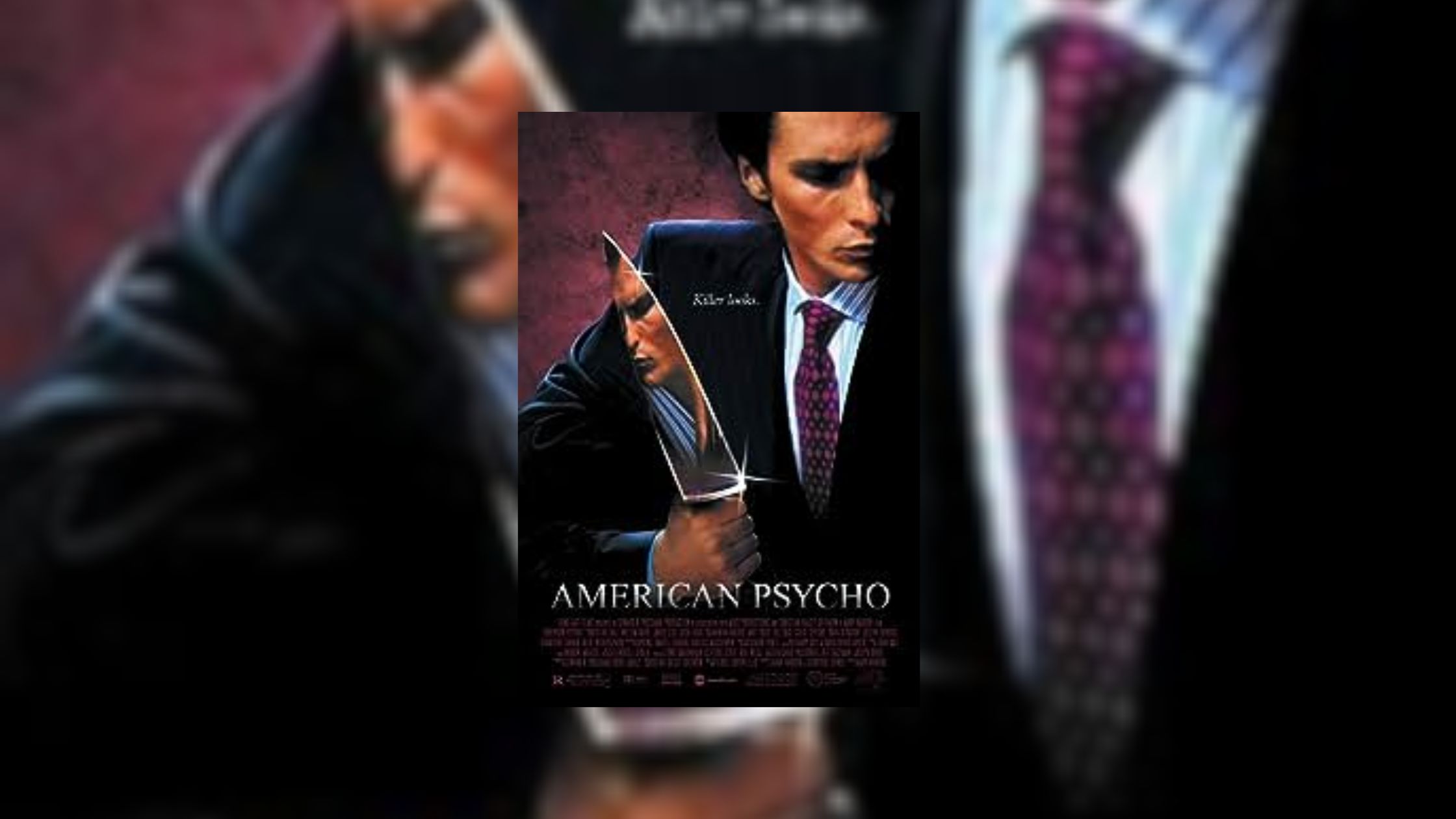
Both films critique the dehumanizing effects of materialism, with “American Psycho” focusing on the superficiality and shallowness of 1980s yuppie culture. Bateman’s obsession with status symbols and appearances resonates with the unnamed narrator’s disillusionment in “Fight Club.”
As Bateman becomes increasingly unhinged, he navigates a world that is both alluring and repulsive. However, while “Fight Club” embraces an anti-establishment ethos, “American Psycho” offers a more personal exploration of a fractured psyche.
Bateman’s violence and sadism are rooted in his struggle for identity, mirroring the unnamed narrator’s quest for meaning through rebellion. Ultimately, both films challenge societal norms and delve into the human psyche, questioning the nature of reality and self in a world dominated by consumerism and conformity.
2. Se7en (1995)
“Se7en”, a gritty 1995 thriller, parallels the mind-bending style of “Fight Club” by delving into the dark recesses of the human psyche. Directed by David Fincher, “Se7en” immerses viewers in a grim urban landscape where moral decay runs rampant.
Detectives Somerset (Morgan Freeman) and Mills (Brad Pitt) tackle a series of gruesome murders representing the seven deadly sins. Just as “Fight Club” explores the disintegration of identity, “Se7en” examines the erosion of morality and sanity in the face of overwhelming depravity.
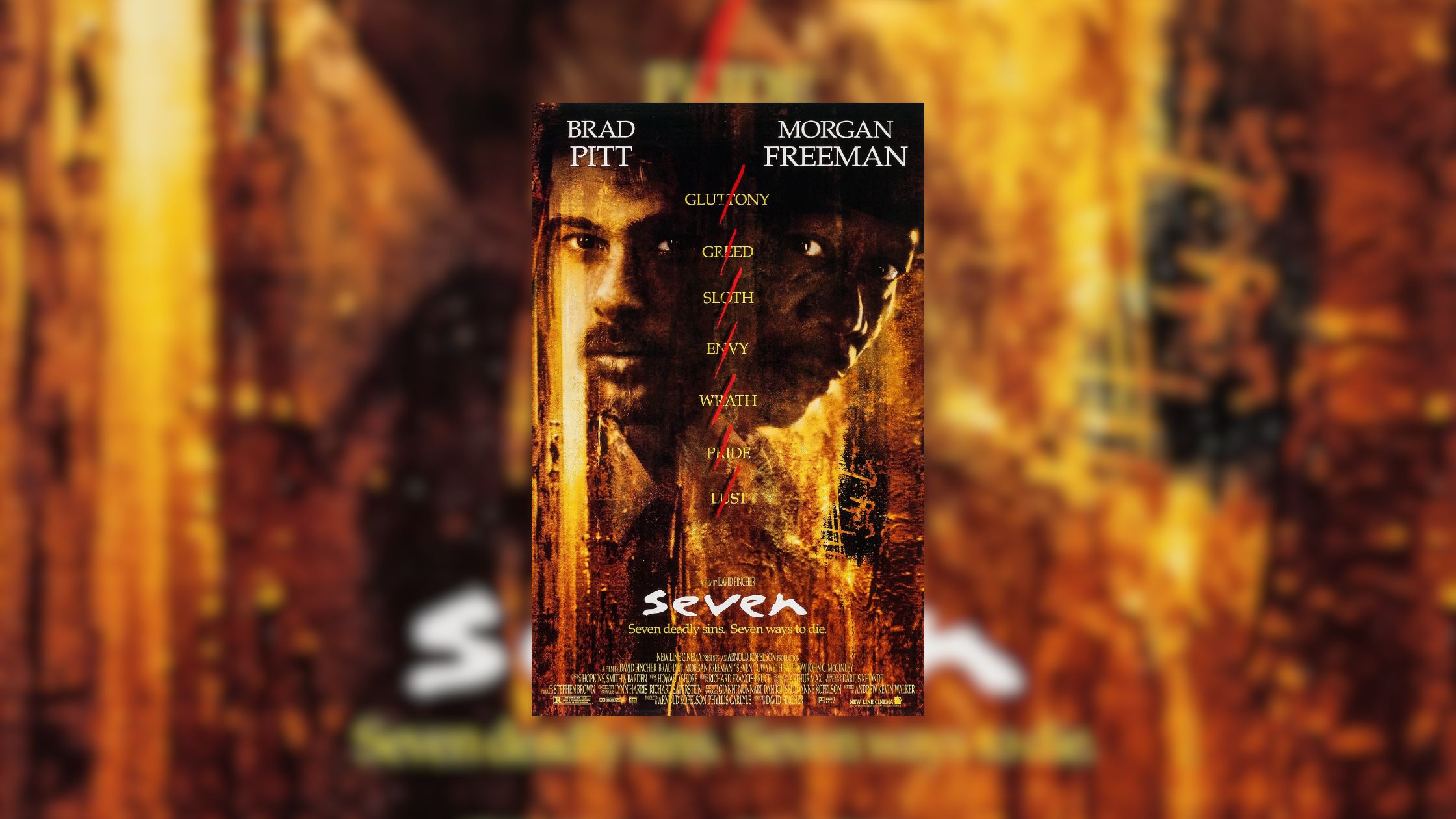
The characters’ descent into an abyss of violence and nihilism draws parallels to the anarchic trajectory of “Fight Club’s protagonists. The tension and moral ambiguity in both films force audiences to confront uncomfortable truths about the human condition.
Fincher’s signature visual style and psychological depth bind “Se7en” and “Fight Club” together. Both films challenge perceptions of reality and delve into the duality of human nature.
Se7en leaves an indelible mark by blurring the lines between the internal and external. This film leaves viewers haunted by its disturbing yet thought-provoking exploration of humanity’s darker aspects.
3. Donnie Darko (2001)
“Donnie Darko,” released in 2001, is a mind-bending cult classic that, like “Fight Club,” delves into the complexities of identity and reality. Set in the late 1980s, it follows the titular character, “Donnie Darko,” a troubled teenager who narrowly escapes death when a mysterious entity in the form of a giant rabbit named Frank leads him away from a falling jet engine.
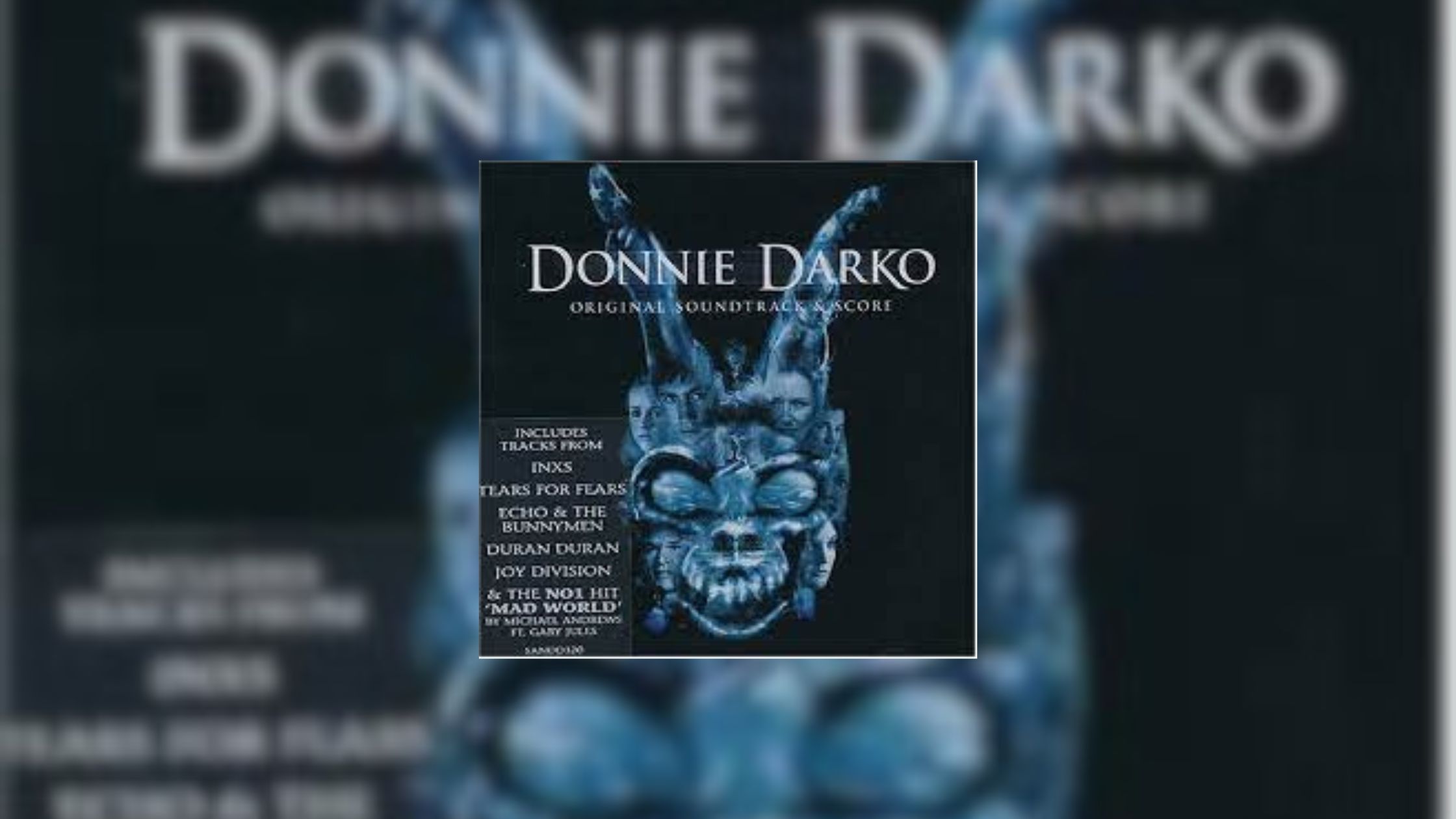
“Donnie Darko” blurs the lines between reality and imagination, exploring the thin boundary between sanity and madness. Donnie’s journey takes a surreal turn as he becomes increasingly entangled in a web of time travel, alternate realities, and existential questioning.
Themes of alienation, mental health, and the duality of human nature resonate through the film, paralleling the introspective exploration found in “Fight Club.”
As Donnie’s reality fractures, the film navigates through a labyrinth of paradoxes, leaving audiences pondering the nature of destiny and free will. It’s a psychological puzzle that rewards repeated viewings, inviting viewers to interpret the intricate layers beneath its surface.
“Donnie Darko” provokes contemplation on the intricacies of human consciousness, mirroring the thought-provoking narrative style.
4. A Clockwork Orange (1971)
“A Clockwork Orange” directed by Stanley Kubrick, pulsates with the same anarchic energy that made “Fight Club” iconic. In a dystopian future, the film navigates the twisted psyche of Alex DeLarge, a charismatic but morally bankrupt youth. Similar to “Fight Club,” it probes the human desire for rebellion and transcendence against societal norms.
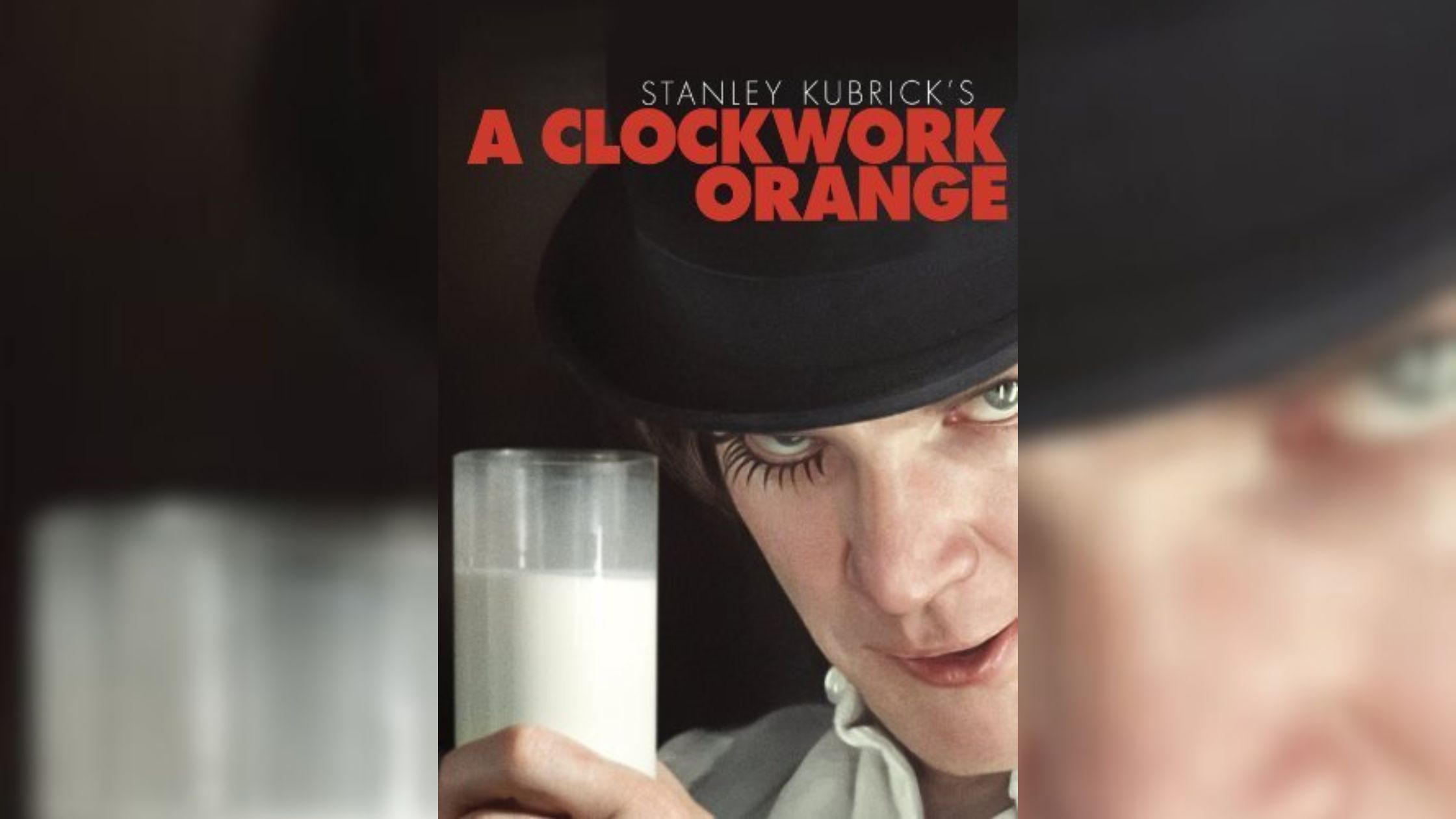
Both films employ stark visual aesthetics to amplify their narratives. Kubrick’s stylized scenes, vividly capturing Alex’s violent escapades, parallel the disorienting nature of “Fight Club’s fights and the disintegration of reality. Themes of identity crisis intertwine in both works, as Alex’s coerced reformulation mirrors the unnamed narrator’s split in “Fight Club.”
However, while “Fight Club” catalyzes a quest for authenticity, “A Clockwork Orange” delves into the implications of psychological manipulation.
Alex’s treatment for his criminal tendencies mirrors the narrator’s internal battle against Tyler Durden. These narratives echo the turbulent human desire to break free from imposed norms and explore darker instincts, ultimately raising questions about the ethics of control.
In essence, “A Clockwork Orange” echoes the thematic complexities of “Fight Club,” both offering gritty explorations of human nature’s darker corners, leaving indelible imprints on cinematic history.
5. Memento (2000)
“Memento” directed by Christopher Nolan in 2000, emerges as a cinematic enigma, akin to the cult classic “Fight Club.” It mesmerizes audiences with its intricate narrative structure and psychological depth. Just as “Fight Club” delves into the complexities of identity and societal disillusionment, “Memento” probes the realm of memory and existential uncertainty.
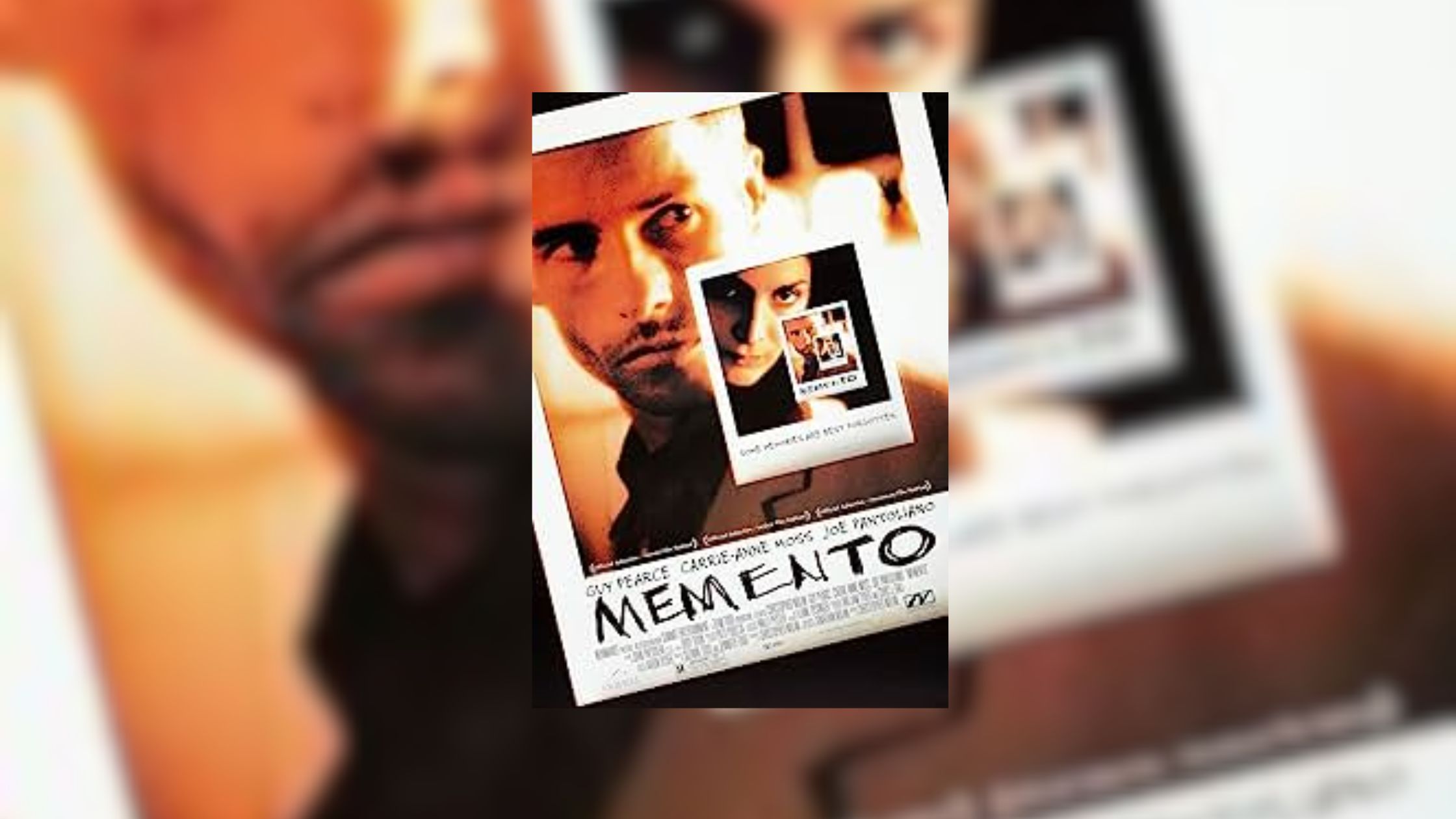
Leonard Shelby, suffering from anterograde amnesia, epitomizes the disarray of his fragmented mind. The film’s reverse chronological sequencing ingeniously places viewers in Leonard’s shoes, mirroring his struggle to piece together his past.
The films share a dark, gritty aesthetic that mirrors the characters’ internal turmoil. While “Fight Club” presents an underground world of violence and rebellion, “Memento” unveils a noir-infused universe rife with deception and manipulation.
Both narratives toy with the blurring line between perception and reality, leaving audiences questioning their understanding of truth. In essence, “Memento” parallels “Fight Club” in its exploration of the human psyche’s darker corners.
With a labyrinthine plot and a relentless quest for identity, the film leaves an indelible mark on the mind, inviting viewers to grapple with the complexities of memory, self-deception, and the enduring quest for meaning.
6. The Machinist (2004)
“The Machinist” released in 2004 and directed by Brad Anderson, echoes themes reminiscent of “Fight Club.” The film revolves around Trevor Reznik, played by Christian Bale, a machinist suffering from severe insomnia. Similar to “Fight Club’s” exploration of a fragmented psyche, “The Machinist” delves into Trevor’s deteriorating mental state and the blurred boundaries between reality and delusion.
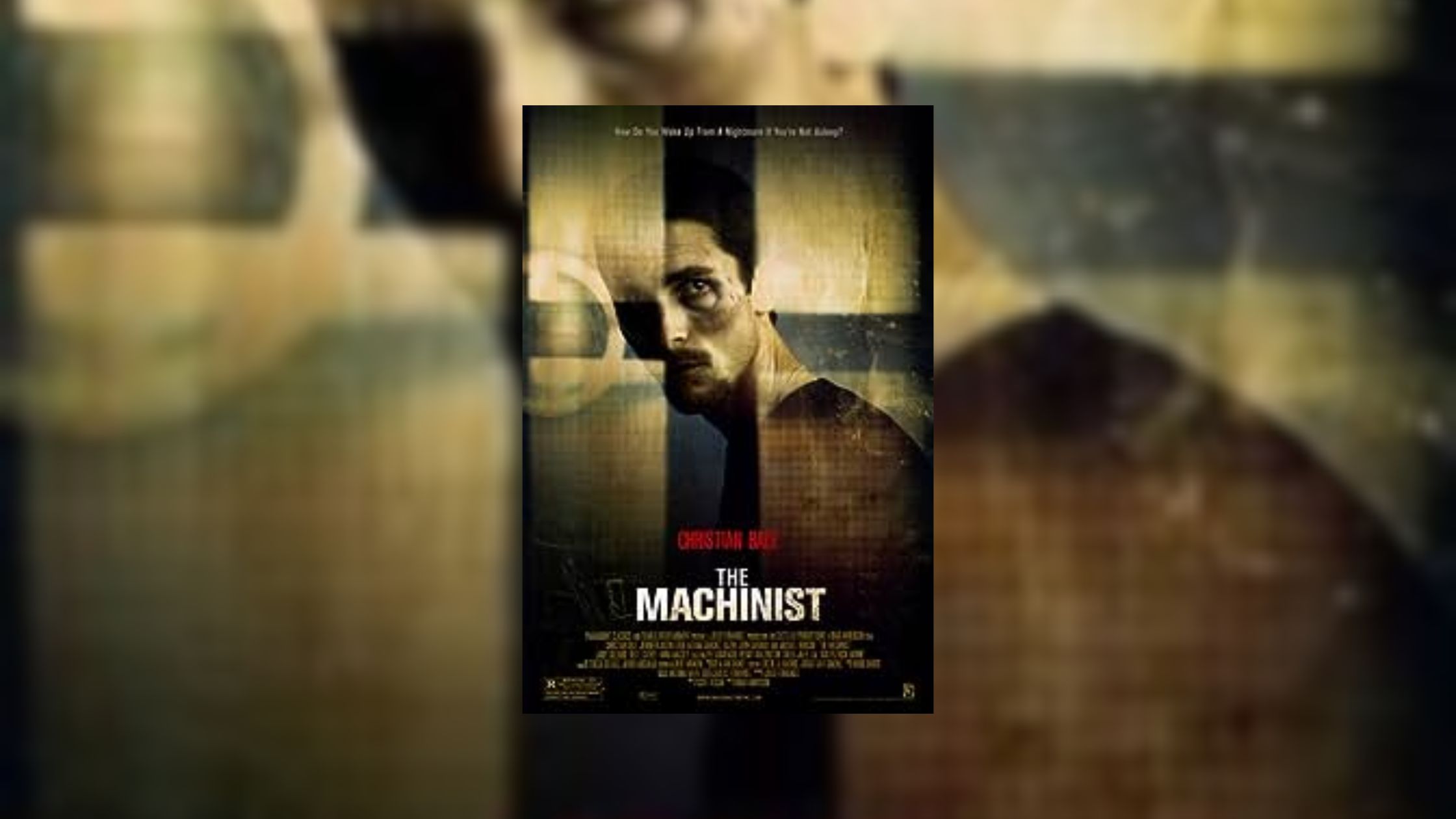
Much like the nameless protagonist of “Fight Club”, Trevor grapples with the duality of his existence. His emaciated physique, a result of his sleeplessness, mirrors the disintegration of his mental and emotional well-being.
The movie’s dark and gloomy aesthetic further contributes to the atmosphere of psychological turmoil. This confusion parallels the grim tone found in “Fight Club.” As Trevor’s insomnia deepens, he begins encountering a mysterious co-worker, Ivan, who may or may not be a product of his imagination, reminiscent of Tyler Durden’s enigmatic presence in “Fight Club.”
“The Machinist” delves into the intricacies of the human mind, the blurred lines between reality and illusion, and the harrowing consequences of a fragmented psyche. Both films serve as psychological thrillers that invite audiences to explore the depths of the human experience and the complexities of the human condition.
7. Taxi Driver (1976)
“Taxi Driver” directed by Martin Scorsese in 1976, is a cinematic masterpiece that delves into the psyche of an isolated individual in a gritty urban landscape.
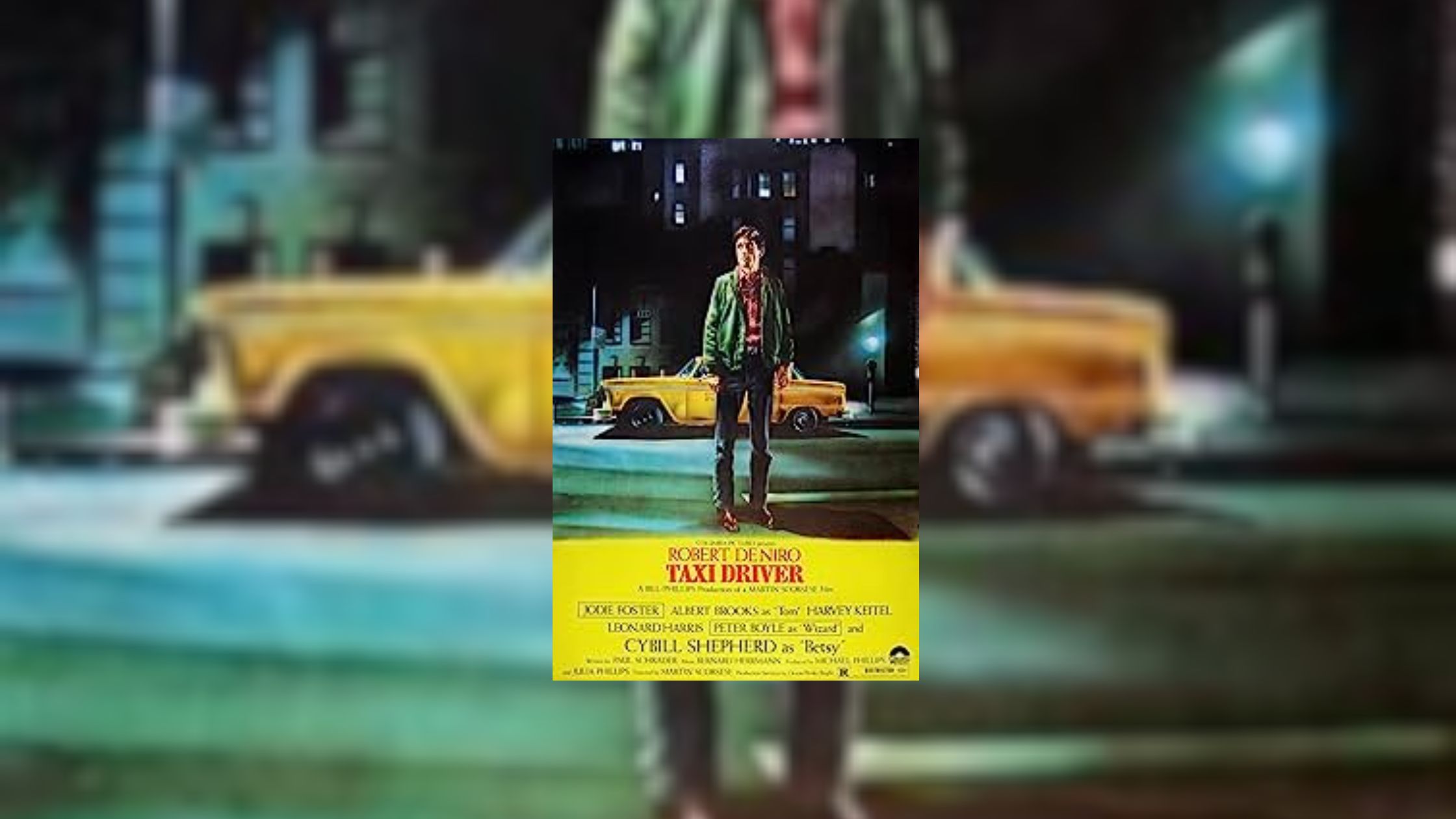
Travis Bickle (played by Robert De Niro), the “Taxi Driver” in question, mirrors the disillusionment and societal detachment of “Fight Club’s” protagonist. Both characters grapple with their demons and perceive the city as a cesspool of moral decay and human alienation.
In “Taxi Driver”, the streets of New York City become a reflection of Bickle’s disturbed mental state. His descent into violence mirrors the anarchic tendencies seen in “Fight Club,” as both films explore the consequences of societal disenchantment and personal alienation.
The films differ in their approach and era but share thematic elements of psychological turmoil and societal critique, resulting in two cinematic gems that continue to captivate audiences with their raw exploration of human psychology and societal disintegration.
8. Requiem for a Dream (2000)
“Requiem for a Dream” directed by Darren Aronofsky, echoes the dark underbelly of society much like “Fight Club.” Both films are gritty mirrors reflecting the disillusionment and desperation of individuals trapped in modern-day chaos. However, while “Fight Club” grapples with masculine identity, Requiem delves into the harrowing consequences of addiction.
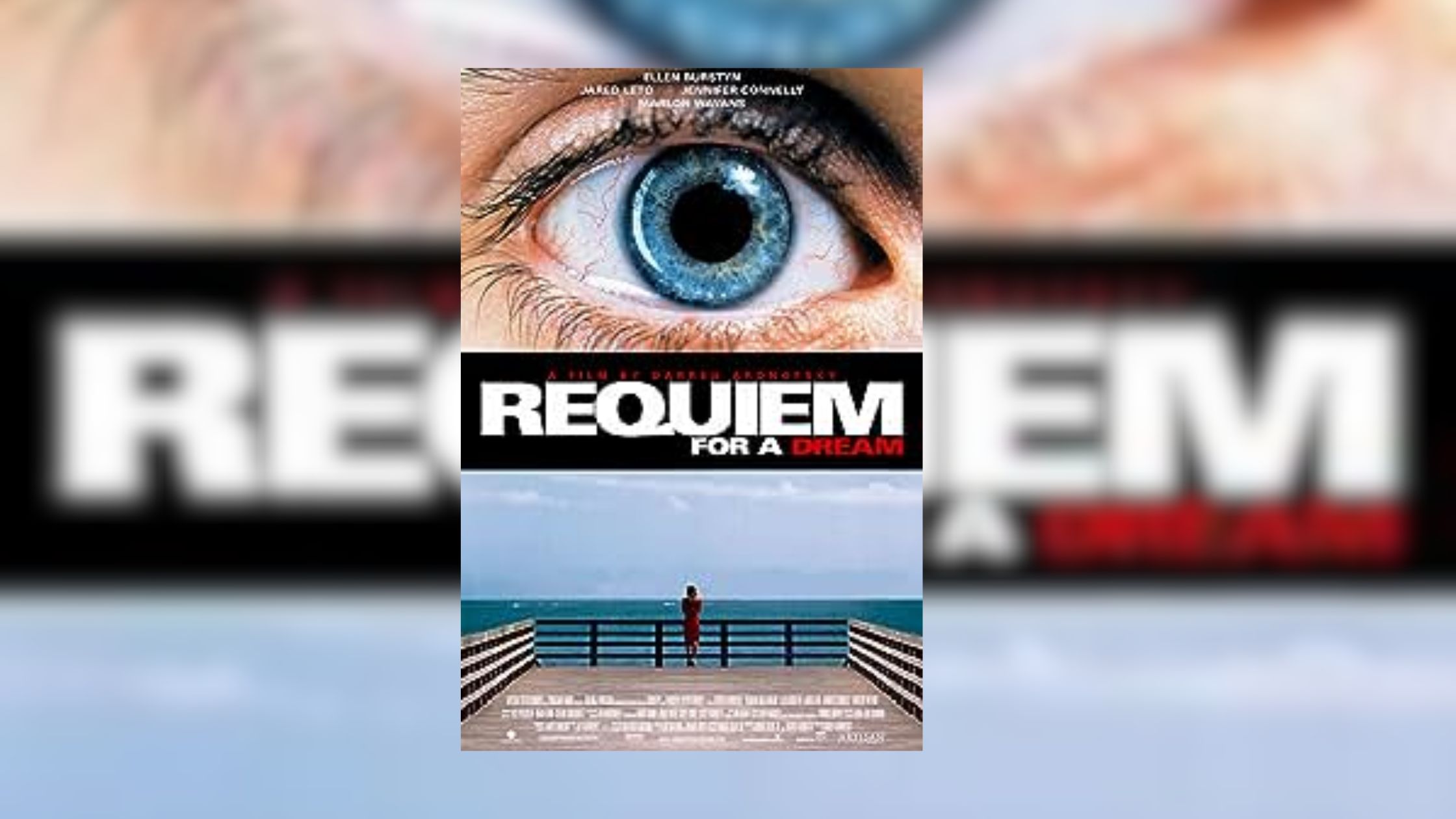
In “Requiem for a Dream”, four characters are ensnared by different forms of addiction: drugs, fame, and delusions of love. Aronofsky’s frenetic editing style parallels “Fight Club’s” visceral energy, dragging audiences into the chaotic lives of these characters.
The haunting soundtrack heightens the film’s intensity, just as the score for “Fight Club” adds to its anarchic tone. Both movies shatter conventional storytelling, employing nonlinear narratives to amplify the characters’ inner turmoil.
Requiem paints a chilling portrait of the character’s physical and psychological decay, mirroring the dissolution of identity seen in Fight Club. While “Fight Club” showcases the psychological struggle against societal conformity, “Requiem for a Dream” paints a visceral picture of the inescapable consequences of addiction.
Both films haunt viewers with their unflinching depictions of human despair, leaving lasting impressions on the darkness that can consume us all.
9. Black Swan (2010)
“Black Swan” is a psychological thriller that parallels the edgy allure of Fight Club, pushing the boundaries of reality and delving into the intricacies of the human mind. Directed by Darren Aronofsky, this film mesmerizingly unravels the story of Nina Sayers (played by Natalie Portman), a gifted but fragile ballerina who becomes consumed by her quest for perfection.
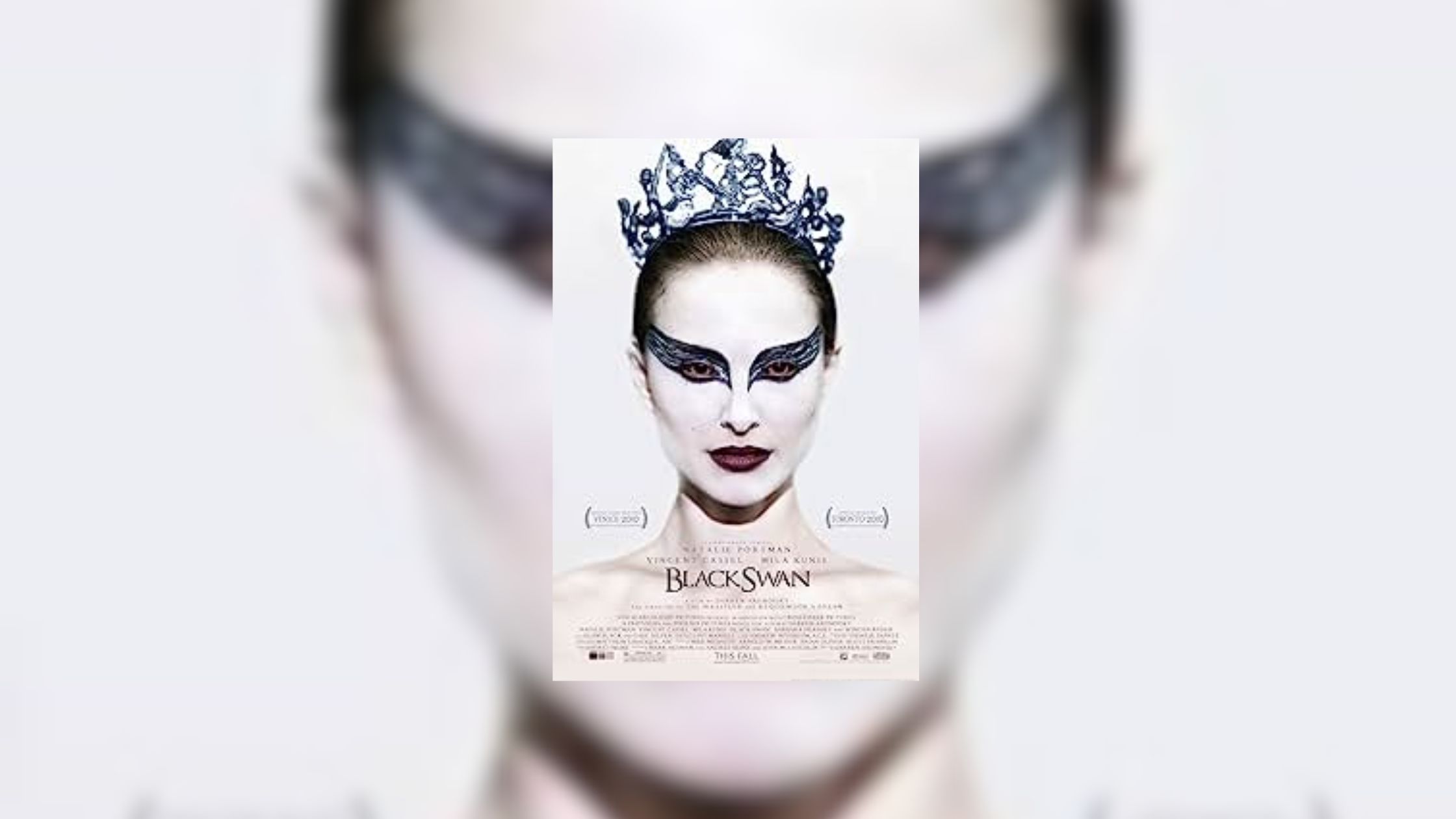
Just as “Fight Club” delves into the protagonist’s psyche, “Black Swan” presents a similar descent into madness. The dance world becomes a battleground for Nina’s internal struggle, mirroring the alter ego concept of “Fight Club.”
The lines between reality and fantasy blur, as Nina’s pursuit of perfection manifests as hallucinations and paranoia, reminiscent of the protagonist’s dissociative state in “Fight Club.”
In both films, physicality becomes a vessel for emotional release. Just as the “Fight Club” members find solace in violence, Nina channels her desires and fears through dance, mirroring the characters’ unconventional coping mechanisms.
“Black Swan” echoes the intense exploration of identity and duality seen in “Fight Club.” Aronofsky employs dark visuals and a haunting score to immerse viewers in Nina’s psychological turmoil, evoking a similar disorienting atmosphere to that of “Fight Club.”
Overall, both films captivate audiences with their harrowing journeys into the labyrinthine depths of the human psyche.
10. Oldboy (2003)
Oldboy, a South Korean neo-noir masterpiece directed by Park Chan-wook, shares thematic parallels with “Fight Club” released in 1999. Both films delve into the complexities of identity, revenge, and psychological turmoil.
In “Oldboy,” Oh Dae-su, a man mysteriously imprisoned for 15 years, becomes a vessel for vengeance. Like “Fight Club’s” unnamed narrator, he grapples with the blurred lines between reality and his perception.
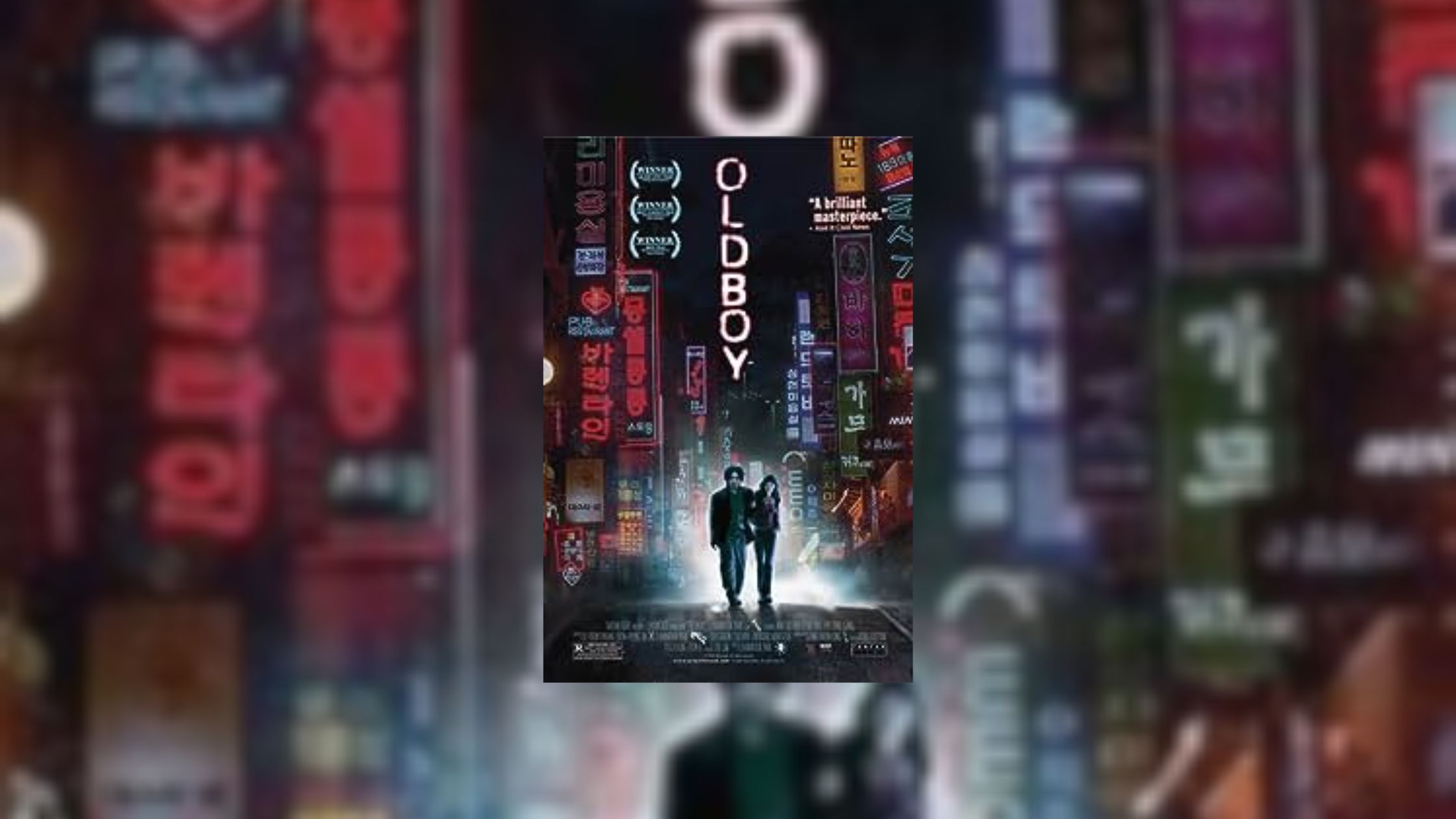
The movies explore the fragility of the human psyche, showcasing how isolation and trauma can shatter one’s sense of self.
As with “Fight Club’s” Project Mayhem, “Oldboy” introduces a secret manipulation at play. Dae-su is manipulated by an enigmatic figure who orchestrates his revenge quest, echoing the chaotic control exerted by Tyler Durden in “Fight Club.” The films provoke viewers to question their complicity in the characters’ descent into moral ambiguity.
“Oldboy” and “Fight Club” both unravel their narratives through shocking twists, leaving audiences stunned by their protagonists’ dualities. These cinematic gems navigate the labyrinthine corridors of the human mind, emphasizing the entwined nature of pain and self-discovery.
Just as “Fight Club” redefined modern cinema, Oldboy is a thought-provoking exploration of human darkness and the indomitable spirit’s struggle for redemption.
The Bottom Line
In a world where cinema offers a plethora of experiences, the allure of psychological complexity, identity exploration, and narrative intrigue continues to captivate audiences. If you’re seeking movies that echo the essence of “Fight Club,” the aforementioned titles are a treasure trove of thought-provoking stories that will leave you pondering long after the credits roll.







